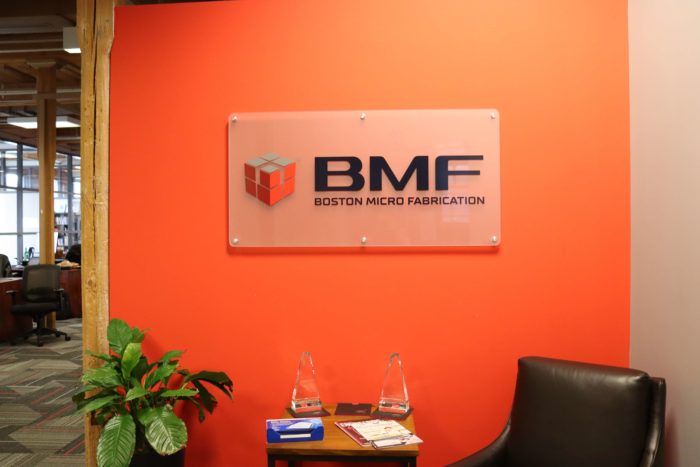Boston Micro Fabrication (BMF), a leader in advanced manufacturing solutions for ultra-high precision applications, recently closed a landmark year where the company experienced 30% sales growth. BMF also secured its Series D funding, launched in new markets and expanded its San Diego Research Institute (SDRI), growing to 200+ team members globally and serving more than 1,800 companies worldwide.
“3D printing is a powerful tool here, and we’re continuing to uncover new applications for our technology.”
BMF’s growth is grounded in its unique, high precision and micro resolution 3D printing technology, Projection Micro Stereolithography (PμSL), which leverages light, customizable optics, a high-quality movement platform, and controlled processing technology to produce the highest precision at the 2μm scale. The company is focused on identifying unique applications for this technology using new materials such as BMF MED and Mechnano’s Formula1µ to help propel innovation across industries.
“Amid a challenging economic environment on both a global stage and for the 3D printing industry, we are very proud of the progress made over the last year to help our customers push the boundaries on what is possible with our technology. And while a lot of this success is due to strong execution from our team, much of it is based on our product-market focus and the fact that we are building a high value, differentiated business,” said John Kawola, CEO of Boston Micro Fabrication.
UltraThineer: Entry into Dental Markets
In 2023, BMF entered the dental market with the launch of UltraThineer, the world’s thinnest cosmetic dental veneers. Cosmetic veneers are currently pressed or milled, and intrusive preparation and grinding are usually required to ensure a good fit. With UltraThineer, this grinding is minimized or eliminated, creating a better experience for patients with less time intensive procedures for dentists.
This product is part of the company’s strategy to identify and develop high value applications where its technology platform can add unique value. Testing and development have been going well, with clearance from the US Food and Drug Administration (FDA) expected by mid-2024.
“Small parts requiring very high levels of precision are difficult to prototype and manufacture, and we are continuing to address segments of the manufacturing and design market that may not be possible through other methods,” Kawola continued. “3D printing is a powerful tool here, and we’re continuing to uncover new applications for our technology.”
San Diego Research Institute Supports Life Sciences
In 2023, BMF also began research at its San Diego Research Institute, a new research and development center in San Diego, Calif., that has been formed specifically to develop and incubate end-product ideas that are uniquely enabled by BMF’s micro-3D manufacturing platform.
The first initiative underway is the development of next generation lab-on-chip structures that leverage the unique advantages of micro-3D printing for cell and tissue cultures. While the concept of a lab-on-a-chip was first introduced over 20 years ago, this new chip introduces a vascularized platform for drug discovery and cosmetic testing. SDRI aims to revolutionize these industries through its ongoing research and development of new production methods and advanced capabilities for these structures.
Subscribe to AM Chronicle Newsletter to stay connected: https://bit.ly/3fBZ1mP
Follow us on LinkedIn: https://bit.ly/3IjhrFq
Visit for more interesting content on additive manufacturing: https://amchronicle.com


